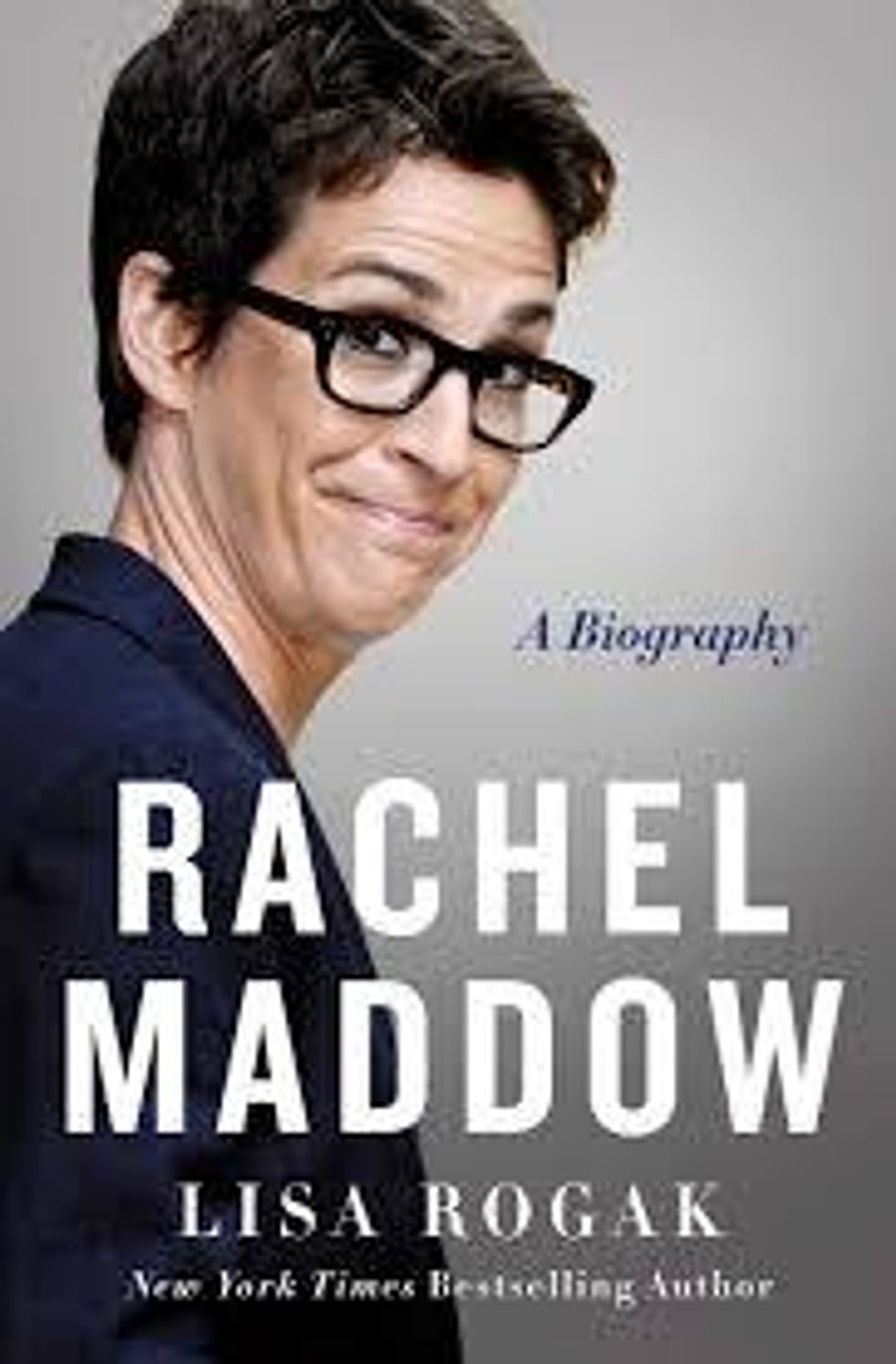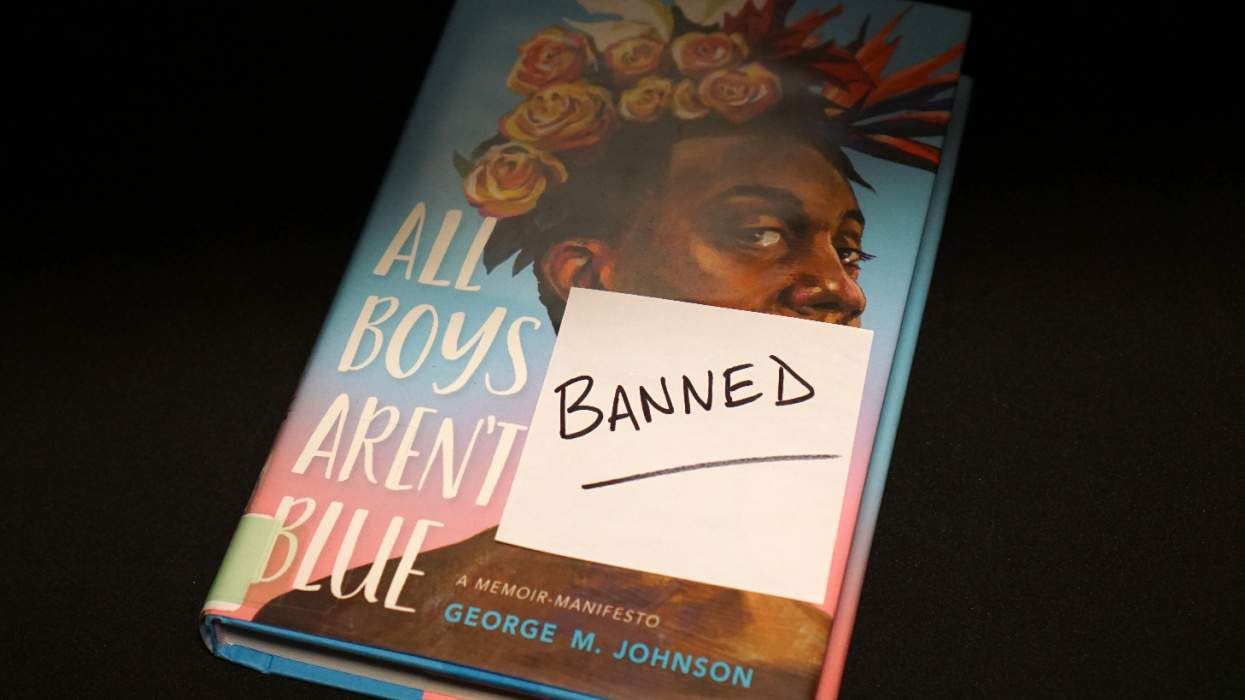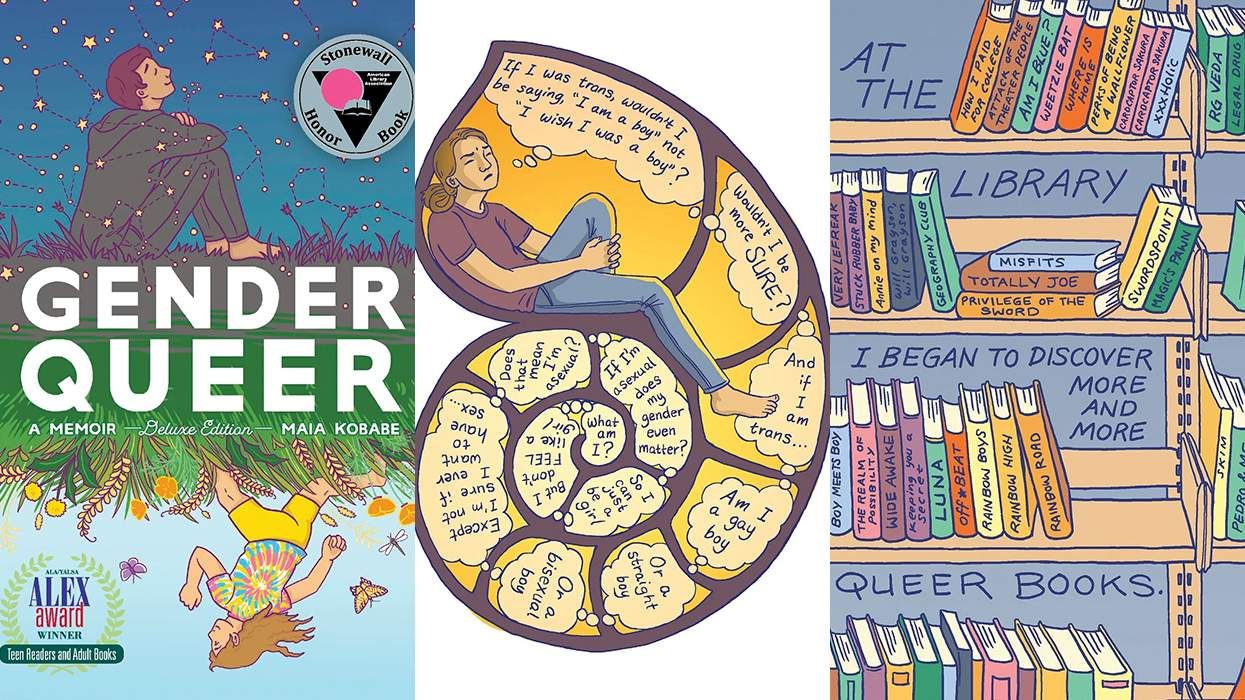For just about her entire life, Rachel Maddow has been hard to miss.
Whether it was the day when she was only three years old and nonchalantly picked up the newspaper and started sounding out the words, or when she was accepted as a Rhodes scholar and dyed her buzzcut bright blue to celebrate, or as a six-foot-tall adult who's happiest dressed in her favorite "third-grade-boy" attire of jeans, t-shirt, and sneakers, she's always stood out in one way or another.
But she's become most prominent for her intelligent banter and lightning-fast wit, as well as her ability to convey information to others in an entertaining way, whether she was defending her doctoral thesis, calling out a list of snow-day school closings on local radio in Massachusetts - complete with sound effects - or explaining on her TV show the most plausible reasons why a certain president would be using Soviet talking points during a Cabinet meeting.
Rachel Maddow has taken a truly unorthodox path to stardom, and she has never apologized or changed who she is to get where she is today. Indeed, in many cases - particularly concerning her sexuality - she's openly flaunted it: This is who I am, take it or leave it.
"I don't make apologies for who I am, and I don't hold back," she's said.
She considers herself to be an outsider, first and foremost, and this has shaped her philosophy and career like nothing else. "I never feel like I fit in, and that's my superpower," she admitted. "That forces me to struggle out of insecurity which somehow results in success. I still feel like a criminal, like I've stolen some more deserving person's television show."
Her reputation for over-preparation - a rarity in the world of fast-paced cable and broadcast news - is famous throughout the industry. Even when she was guest-hosting for Keith Olbermann on Countdown, she'd arrive at MSNBC at nine in the morning to prepare for a show that wouldn't air until eleven hours later; indeed, there are many hosts who glide into the studio an hour or two before airtime, largely leaving the sausage-making to the staff. Not Rachel. "I've been in the TV game a long time, and I've never seen anyone prepare like she does," said Bill Wolff, executive producer of The Rachel Maddow Show.
While she loves nothing more than to impart new information - or a new twist on an old topic - to millions of viewers, she is a loner at heart and works best by herself, behind a closed door where she can have time alone to indulge her curiosity, dig for obscure facts, and write an opening monolog that is both entertaining and informative, and provides a new spin on a well-worn headline. She's also been open about her own personal struggles, including the fact that she suffers from depression.
"I am not a model of mental health," she's admitted.
And she openly acknowledges that what motivates her is the fear of failure. "It's very boring and sad, but I want to convince myself that my existence matters," she said, which is hard to fathom given the years she spent as an activist fighting for people with AIDS.
"Rachel, as I knew her, has always been about making a contribution," said Cory Booker, the mayor of Newark, New Jersey, who was friends with her at Stanford and Oxford. "She wasn't just about giving commentary; she was an activist. She wanted to change the world."
"She's unique," said Matt Delzell, managing director at The Marketing Arm, a branding agency. She refuses to toe the line when it comes to any party while remaining true to liberal values in the true sense of the word. "Her uniqueness and her underdog appeal draw people in, regardless of whether they agree with her opinions," he added. "She's not afraid to criticize liberals despite being a liberal."
Indeed, she relishes her role as an equal-opportunity critic. "I'm interested in making fun of bad ideas, regardless of who has them," she said. "Obviously you don't want to randomly scour the world for bad ideas, you want to respond to influential bad ideas. So if you end up in a situation where there isn't a loyal opposition, where the Republican Party is in disarray and isn't really surfacing in the discussion, then they won't be the people I'm making fun of. I will be making fun of the Democrats or the supposed experts."
She has long welcomed the staunchest of conservatives onto her show, where she has been honestly curious - and eager - to hear what they have to say. "We just click," said Michael Steele, former chairperson of the Republican National Committee. "She listens. It's one of the reasons I love going on her show. And when it's all said and done, no one is angry, no one is bloody."
"I certainly don't agree with her politics at all, but she's a really nice person," said Tucker Carlson, who regularly invited Rachel onto his mid-2000s show The Situation to debate the topics of the day. "It's very hard to find people who can argue well, who can argue from principle. She's a person of principle."
She is also hugely patriotic, and has been known to tear up whenever she hears "The Star-Spangled Banner" play. "I am a person who feels personally aggrieved by people who undermine our constitutional republic," she said. "That makes me passionate about all sorts of things, including freedom of religion and freedom from religion. I think the Fourth Amendment is personally wired into my DNA."
* * *
Despite her obvious excitement when talking about certain stories on camera, Rachel maintains that she's oddly calm especially when working on a story that has everyone else up in arms. "I don't have an emotional reaction to the news," she said. "It's like if you're a surgeon who's removing brain tumors. While you're doing the surgery, do you feel sad for the person having gotten the tumor? No, you're working on taking care of the tumor and fixing it."
Underscoring everything is the clear fact that she respects the intelligence of her audience, which can be a hard thing to find on any network or cable show out there today. "Put a lot of information out there, and people can handle it," she said. "It's okay to use big words; you don't need to dumb stuff down or make stuff simple and repetitive for people. If you assume that your audience is as interested in what you are talking about as you are, you're going to connect with your audience in a much better way."
Despite these contradictions - or maybe because of them - millions love her and tune in regularly for her honesty and willingness to say what few other public figures will say, and for not hiding her glee whenever crooked, incompetent, or just plain mean people - politicians and otherwise - get caught. But even in these moments, she never belittles the scoundrels.
"Even though I can be harsh in my criticism and I can be strong in my beliefs, I try not to be mean," she said. "And I don't have a very high tolerance for other people who are cruel or personally insulting in a way that I think is meant to humiliate people."
"You'd have to be a really miserable specimen of a human being to not like her," said Keith Olbermann, who encouraged MSNBC to give Rachel her own show.
"I have always felt like my job is to chart the waters," she said. "And we are at sea."
At the same time, she has never tried to conceal her ambition; after all, she dreamed of having her TV own show for many years before it actually happened. "I'm trying to be influential," she said. "I'm trying to be part of the discussion. You reach people in television in a way that allows you to make more of an impact. If that's the game you've decided to play, you might as well try to win."
From RACHEL MADDOW: A Biography by Lisa Rogak. Copyright (c) 2020 by the author and reprinted by permission of St. Martin's Publishing Group.
















Charlie Kirk DID say stoning gay people was the 'perfect law' — and these other heinous quotes
These are some of his worst comments about LGBTQ+ people made by Charlie Kirk.